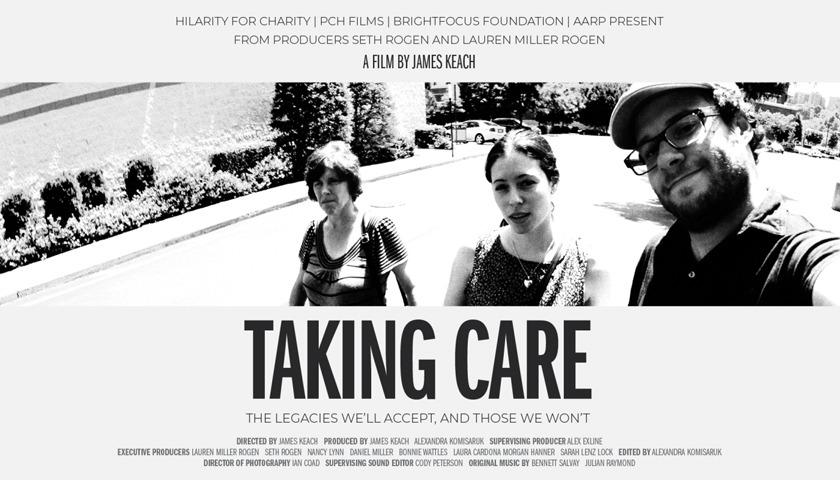This spring, Alzheimer’s Research UK awarded an incredible £6.7million to 45 cutting-edge research projects – the largest amount we’ve ever committed in a single round of funding. It’s a powerful reflection of the growing momentum in dementia research and our commitment to invest in the most promising ideas in order to find a cure for dementia.
If you’d like to learn more about the research we fund, you can find out here.
Investing in the future leaders of dementia research
At Alzheimer’s Research UK, we know that tomorrow’s breakthroughs depend on the scientists we support today. That’s why we’re focused on backing the future leaders of dementia research, the rising stars whose ideas and energy will drive progress towards a cure. Early career researchers are at the heart of this mission.
Starting a career in dementia research
Through our PhD studentships and fellowship schemes, we provide vital funding, training, and mentorship to help build the skills, experience, and independence needed for long and impactful careers in dementia research.
In a competitive research landscape, our support helps ensure that talented scientists can stay in the field, pursue bold ideas, and become the leaders who will shape the future of dementia research.
This year we have we committed to investing £2.5 million into our PhD Scholarship programme, which supports researchers at the start of their career to complete a doctorate.
One of these PhD students is in Dr Scott Miners’ lab investigating how damage to the brain’s blood vessels, especially the protective blood-brain barrier, may contribute to Alzheimer’s disease. This barrier controls what enters the brain from the bloodstream, and early damage to it could play a key role in the disease. The project will explore what causes this damage and whether existing drugs used for other conditions, like diabetic eye disease or cancer, could help protect the brain and slow the progression of Alzheimer’s.
Establishing independence as an early career researcher
Our Doctoral Clinical Fellowships, supported by our partnership with Omaze, fund doctors and healthcare professionals to combine clinical work with research, taking the most promising discoveries out of the lab, and transforming them into benefits for people with dementia.
Clinical Fellow Dr Sabrina Kalam at University College London is exploring why Lewy body dementia (LBD) may affect people from minoritised ethnic backgrounds in the UK differently. Conditions like high blood pressure and diabetes are more common in these groups and can damage small blood vessels in the brain, increasing the risk of LBD.
The study will compare people from different ethnic backgrounds to understand how these risk factors vary. Importantly, people with lived experience have helped shape the project, making it more inclusive and relevant to those it aims to help.
Driving discovery through bold science and collaborative innovation
Breakthroughs in dementia research don’t happen in isolation. They’re built on bold ideas, determined scientists, and the freedom to explore new paths. That’s why we invest in Pilot and Major Projects that challenge what we know about dementia.
These grants fund collaborative efforts to better understand the causes, diagnosis, prevention, and treatment of diseases like Alzheimer’s, giving labs the resources to test new ideas and gather the evidence needed to drive progress.
Projects testing promising new ideas
In February, we funded 19 Pilot Projects – short-term funding to test new ideas that could lead to bigger studies – totalling over £1.2million.
One of the projects funded is led by Prof John O’Brien at the University of Cambridge, who has collaborated on Alzheimer’s Research UK funded projects since 2018. His team is exploring whether a type of immune cell called neutrophils could act as a biomarker to help distinguish between different forms of dementia, including Alzheimer’s disease and dementia with Lewy bodies or Parkinson’s disease. Using a new technique, they’ll study how these cells behave in each condition, with the aim of identifying patterns that could support earlier and more accurate diagnosis.
Long-term investment in research that changes lives
We also fund large-scale, collaborative research that tackles big questions in dementia science through our Major Project scheme. This year, we invested just under £2 million into our Major Projects.
Dr Hugh Markus received funding to investigate how damage to the brain’s blood vessels contributes to vascular dementia, building on earlier work supported through a Pilot Project Grant. His research focuses on cerebral small vessel disease (cSVD), which can be caused by high blood pressure or inherited genetic changes. Despite these different causes, researchers think cSVD often leads to a common issue: a weakened support system around the brain’s blood vessels. This can make the protective blood-brain barrier leaky and allow harmful substances into the brain. Dr Markus’s team aims to better understand this process and support the development of new treatments, an area gaining momentum across dementia research.
By backing ambitious projects and scientists at each stage of their research career, we’re helping to accelerate discoveries that bring us closer to a cure.
In total, Alzheimer’s Research UK has now funded over 1,270 projects across all forms of dementia, but there is more to come. Check back soon for the latest awards from our summer Grant Review Board.
If you’d like to find out more about how we fund research, learn more here.


